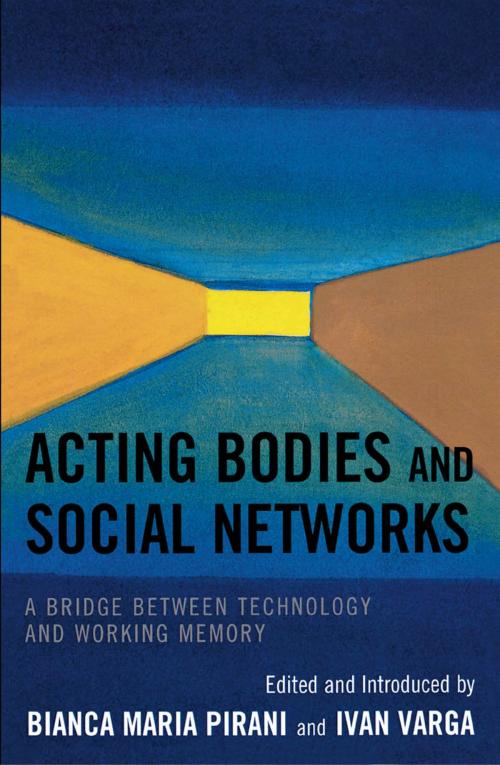Acting Bodies and Social Networks
A Bridge between Technology and Working Memory
Nonfiction, Reference & Language, Language Arts, Communication, Social & Cultural Studies, Social Science, Sociology, Religion & Spirituality, New Age| Author: | ISBN: | 9780761849988 | |
| Publisher: | UPA | Publication: | December 15, 2009 |
| Imprint: | UPA | Language: | English |
| Author: | |
| ISBN: | 9780761849988 |
| Publisher: | UPA |
| Publication: | December 15, 2009 |
| Imprint: | UPA |
| Language: | English |
Acting Bodies and Social Networks analyzes the complex interactions of body, mind and microelectronic technologies. Internationally renowned scholars look into the nature of the mind - a combination of thought, perception, emotion, will and imagination - as well as the ever-increasing impact and complexity of microelectronic technologies. The proliferation of these technologies facilitates a profound change in the boundaries between bodies and technologies. These technologies expand the temporal and spatial existence of humans; today, people can instantly communicate all over the world and overcome time and space restraints by using the latest available microelectronic technologies. The first volume, The Body as Social Icon, examines how memory is affected by the new technology and the related theoretical issues while the second, Mapping Bodies in a Networked Space, deals with the influence of the new technologies on everyday life practices. At the 'information portal,' the brain's capacity is loosing its ability to retain information. In 2004, a number of well known neuroscientists, including Nobel laureate Eric Kandel, wrote a review about the ethical dilemma computer technologies raise, stating that 'humanity's ability to alter its own brain function might well shape history as powerfully as the development of metallurgy in the Iron Age.' By introducing the concept of acting body, this book contributes to discussion concerning the future development of Homo sapiens. We consider the acting body as a bridge between technology and working memory, which entails a radical change in our approach to the social sciences.
Acting Bodies and Social Networks analyzes the complex interactions of body, mind and microelectronic technologies. Internationally renowned scholars look into the nature of the mind - a combination of thought, perception, emotion, will and imagination - as well as the ever-increasing impact and complexity of microelectronic technologies. The proliferation of these technologies facilitates a profound change in the boundaries between bodies and technologies. These technologies expand the temporal and spatial existence of humans; today, people can instantly communicate all over the world and overcome time and space restraints by using the latest available microelectronic technologies. The first volume, The Body as Social Icon, examines how memory is affected by the new technology and the related theoretical issues while the second, Mapping Bodies in a Networked Space, deals with the influence of the new technologies on everyday life practices. At the 'information portal,' the brain's capacity is loosing its ability to retain information. In 2004, a number of well known neuroscientists, including Nobel laureate Eric Kandel, wrote a review about the ethical dilemma computer technologies raise, stating that 'humanity's ability to alter its own brain function might well shape history as powerfully as the development of metallurgy in the Iron Age.' By introducing the concept of acting body, this book contributes to discussion concerning the future development of Homo sapiens. We consider the acting body as a bridge between technology and working memory, which entails a radical change in our approach to the social sciences.















